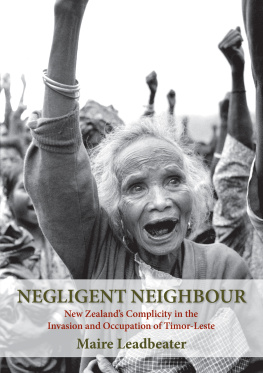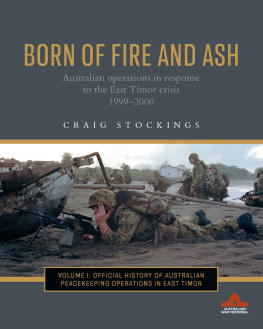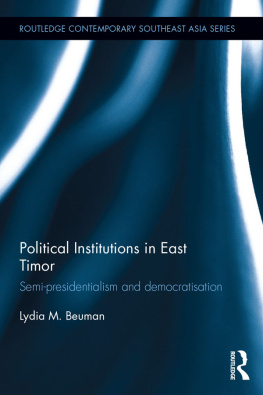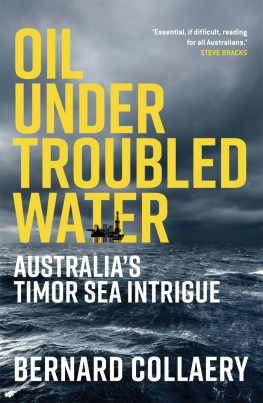
The 2006 Crisis in East Timor
This book argues that the international community must share responsibility for contributing to the conditions that resulted in violent conflict in Timor-Leste, four years after it declared independence from Indonesia. Its failure to tailor interventions to Timor-Lestes specific political economy and conflict dynamics distanced the state from its citizens and undermined its capacity to forge a political settlement founded on a robust social contract.
At a time in which conflict-affected states are receiving unprecedented attention and peacekeeping operations and humanitarian emergencies are becoming increasingly complex, this book argues that radical changes are urgently required in the way the international community operates in these environments. The findings are rooted in an examination of the mechanisms used by international development actors in Timor-Leste between 1998 and 2006. In bringing together wide-ranging perspectives, the author shows that international actions cannot be separated from the local political and socio-economic context, demonstrating that interventions are never apolitical and that peacebuilding must be intentional. Indeed, political settlements premised on a robust social contract should not be taken for granted anywhere. The impact of increasing disenfranchisement, mistrust in institutions and structural inequalities evident in the global North suggest that lessons from peacebuilding in Timor-Leste are relevant far beyond its shores.
This book is essential for students and researchers in the fields of development studies, international political economy, peacebuilding and conflict resolution, and for practitioners and policymakers striving to advance peace.
Rebecca E. Engel is a Lecturer at the University of York, UK.
Routledge Research on Asian Development
Development and Gender Capital in India
Change, Continuity and Conflict in Kerala
Shoba Arun
Bangladeshs Graduation from the Least Developed Countries Group
Pitfalls and Promises
Edited by Debapriya Bhattacharya
Regional Cooperation for Peace and Development
Japan and South Korea in Southeast Asia
Edited by Brendan Howe
Child and Youth Well-being in China
Lijun Chen, Dali L. Yang, Di Zhou, and Qiang Ren
Modern Slavery and Bonded Labour in South Asia
A Human Rights Based Approach
Elena Samonova
Social Development and the Sustainable Development Goals in South Asia
Edited by Nitya Khemka and Suraj Kumar
Community Welfare Organisations in Rural Myanmar
Precarity and Parahita
Michael P. Griffiths
The 2006 Crisis in East Timor
Lessons for Contemporary Peacebuilding
Rebecca E. Engel
The 2006 Crisis in East Timor
Lessons for Contemporary Peacebuilding
Rebecca E. Engel
First published 2021
by Routledge
2 Park Square, Milton Park, Abingdon, Oxon OX14 4RN
and by Routledge
52 Vanderbilt Avenue, New York, NY 10017
Routledge is an imprint of the Taylor & Francis Group, an informa business
2021 Rebecca E. Engel
The right of Rebecca E. Engel to be identified as author of this work has been asserted by her in accordance with sections 77 and 78 of the Copyright, Designs and Patents Act 1988.
All rights reserved. No part of this book may be reprinted or reproduced or utilized in any form or by any electronic, mechanical, or other means, now known or hereafter invented, including photocopying and recording, or in any information storage or retrieval system, without permission in writing from the publishers.
Trademark notice: Product or corporate names may be trademarks or registered trademarks, and are used only for identification and explanation without intent to infringe.
British Library Cataloguing-in-Publication Data
A catalogue record for this book is available from the British Library
Library of Congress Cataloging-in-Publication Data
A catalog record has been requested for this book
ISBN: 978-1-138-59064-9 (hbk)
ISBN: 978-0-429-49090-3 (ebk)
Typeset in Goudy
by Wearset Ltd, Boldon, Tyne and Wear
Contents
Preface
Why this book?
In 1998, I was living in New York and working with Columbia Universitys International Conflict Resolution Program (ICRP), later renamed the Center for International Conflict Resolution (CICR). As a project associate, I provided support to a team of international experts working in collaboration with FAFO, an independent Norwegian social science research foundation, to produce a report titled Social and Economic Conditions in East Timor. The project team had been assembled at the request of Jose Ramos-Horta, the lead East Timorese diplomat responsible for keeping East Timor on the international agenda. The timing of this initiative was concurrent with the initiation of a new round of tripartite negotiations between Portugal and Indonesia on the status of East Timor held under the auspices of the United Nations (UN). At the time, the Indonesian political landscape was in flux amidst the Asian financial crisis; Xanana Gusmo, leader of the resistance who would later become Timor-Lestes first president, was in prison; and East Timorese hopes for change, both in the territory and among the Diaspora were newly rekindled. It is fair to say that between 1998 and 1999, no one on the team anticipated the magnitude of the agreements and events to follow.
The reports utility was premised on the need for impartial baseline data on key socio-economic conditions in East Timor to enable planning and prioritization for development in the event of a political transition: it was hoped that the disaggregated data on East Timors demography, environment, agriculture, health, economy, education, infrastructure and governance would help the East Timorese and others prioritize post-conflict peacebuilding and development requirements in the territory once a negotiated settlement was in place. However, in practice, it was the process surrounding the reports preparation that was much more meaningful: because the East Timorese had not been invited to the negotiating table where their fate was being discussed, creating openings for their preferences and expectations to be expressed was considered essential at the time. The project used the opportunity provided by the reports preparation to bring together and build relationships between central East Timorese figures and the group of Friends of East Timor at the UN. In addition to the briefings held with the diplomatic corps, discussions were also organized with representatives of the National Council of Timorese Resistance (CNRT), the umbrella organization for East Timorese political parties and nationalist, cultural and religious groupings (Niner, 2000:11), and a range of academic, bi- and multi-lateral development agencies and non-governmental organizations (NGOs).
It was not until years later that I considered the significance of this process in the context of the longer-term development trajectory of Timor-Leste. What seemed natural to us, a participatory process whereby East Timorese voices, concerns and expectations of the negotiations were brought to the proverbial table where their future was being discussed, would, it turned out, not prove to be so intuitive for other organizations. Policy and programming decisions about the development trajectory of the territory and the nature of the soon-to-be independent state were increasingly taken by the international community rather than by the East Timorese themselves. Working on the report served as my formal introduction to the situation in East Timor and my first exposure to what I later realized was a pattern of international decision-making for Timor-Leste, where the input of East Timorese citizens and their representatives was viewed as optional and only sought when convenient. This is not to say that CICR was alone in its efforts to listen to and provide a platform for East Timorese engagement. We were, rather, a small actor in the company of many admirable civil society activists, academics and others, from Australia to Portugal and from the UK to the US, who had been working tirelessly for decades with East Timorese counterparts to open avenues to advance their struggle for self-determination. Despite our collective efforts however, it quickly became apparent that we were working against strong counter-tendencies embedded within the international communitys diplomatic and negotiation systems.












